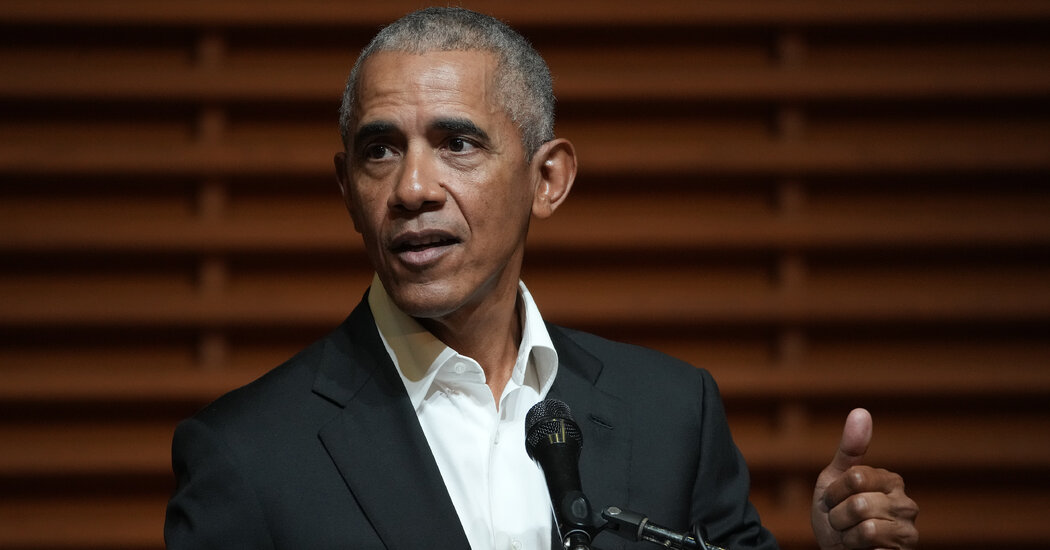PALO ALTO, Calif. — Former President Barack Obama on Thursday called for increased regulatory oversight of the country’s social media giants, saying their power to control the information people consume has “turbocharged” political polarization and the pillars of democracy across the globe. threatened the whole world.
He weighed in on the debate over how to tackle the spread of disinformation and said the companies should subject their own algorithms to the same kind of regulatory oversight that ensured the safety of cars, food and other consumer products.
“Tech companies need to be more transparent about how they operate,” Obama said in a speech at Stanford University, a long-time breeding ground for the Silicon Valley tech sector. “So much of the conversation about disinformation is focused on what people post. The bigger issue is what content these platforms promote.”
The former president backed proposals to revise an important legal shield for internet companies: Section 230 of the Communications Decency Act, which protects social media platforms from liability for content their users post. Proponents of the change believe it would force companies to do more to curb illegal or dangerous behavior — from drug sales to disinformation with equally damaging consequences.
Mr. Obama praised the transformative benefits of the Internet, but urged companies to put social responsibility ahead of the relentless pursuit of profit.
“These companies need another North Star than just making money and increasing profit share,” he said.
Mr. Obama spoke at a conference hosted by Stanford’s Cyber Policy Center, which is devoted to the challenges the digital world has created for democracy in the United States and beyond. He cited his own effective use of social media as a candidate, as well as his frustration with the way Russian President Vladimir V. Putin used social media to influence the outcome of the 2016 presidential election.
“What still bothers me was that I didn’t fully realize how prone we had become to lies and conspiracy theories, despite being a target of disinformation myself,” he said, citing the spurious debate about his birth in the US. . certificate. “Putin didn’t. He didn’t have to. We did it to ourselves.”
Among those in attendance were prominent scientists, former government officials and representatives of several tech companies, including Alphabet – which owns Google and YouTube – and TikTok. In separate discussions, panelists largely agreed on the problem of disinformation and the toxicity and bias it fuels, but there was little consensus on which specific solutions would work best or be politically possible.
“We’re not going to cure or even control this problem overnight,” said Larry Diamond, a senior fellow at the Hoover Institution and the Freeman Spogli Institute for International Studies at Stanford. He is also an author, most recently of “Ill Winds: Saving Democracy From Russian Rage, Chinese Ambition, and American Complacency.”
On the sidelines, Mr. Obama also met a smaller group of students and young scientists from the Obama Foundation. At one point, he asked Elise Joshi, director of operations for a group called Gen-Z for Change, to explain why TikTok was more than dance videos.
“It will be your generation that is figuring this out,” Mr. Obama told them.

